Which of These Should Be Easy to Believe
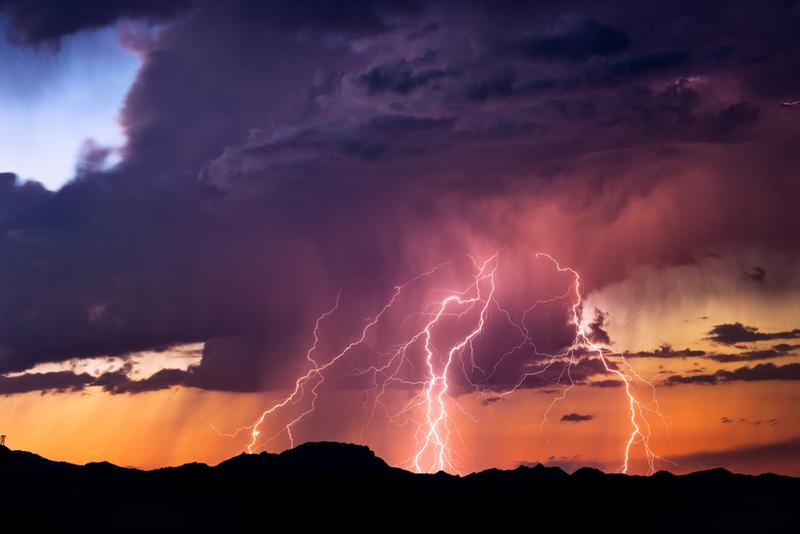
Some incredible natural phenomena occur in the most remote places on Earth. From Siberia to Antarctica, Death Valley to the Atacama, and Lake Maracaibo to Turkmenistan, natural phenomena can happen anywhere. Some can even be found right in your backyard.
Whether they inspire awe or terror, these 30 amazing natural phenomena must be seen to be believed.
Penitentes
It's almost as if Chile's tourism board said: "What about icicles, but bigger, and upside down?" Looking like a frozen stalagmite, penitentes are jagged formations of snow that have partially evaporated at high altitudes, leaving amazing structures that point towards the sun.
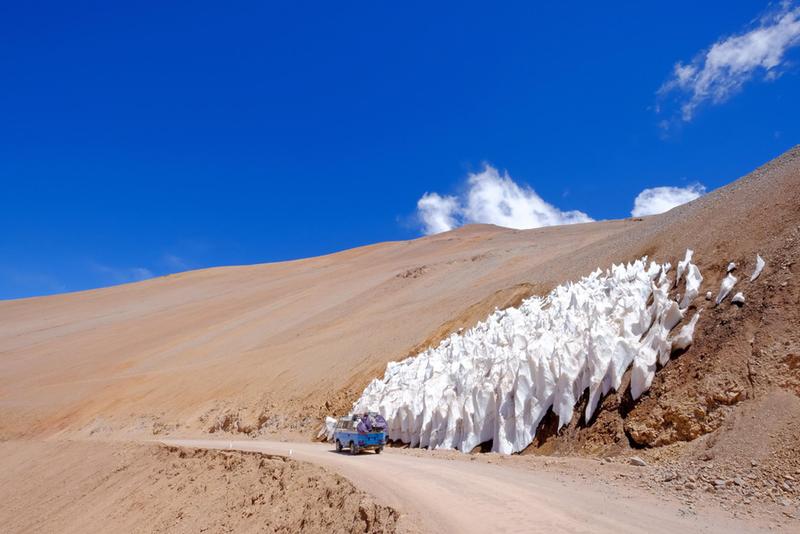
Heat from the sun evaporates water before the snow melts, a process known as sublimation, similar to when ice cubes dissipate if left in the freezer too long. This produces an eerie, otherworldly visual and an extremely problematic landscape for hikers. Penitentes can be taller than a human and have been measured at up to 20 feet tall.
Here's a quick science lesson: When lightning strikes, a massive amount of electricity is discharged, heating the surrounding air to around 54,000°F. This heat causes the air to expand quickly, creating a shock wave that produces the sonic boom we know as thunder. That's the science behind your typical thunderstorm.
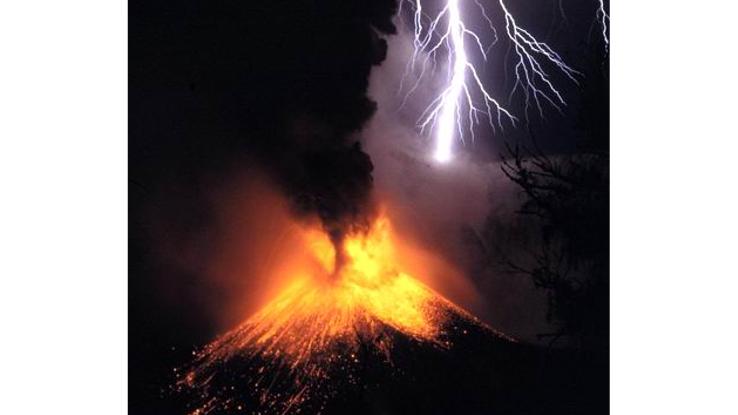
A volcanic thunderstorm, however, is vastly different. In this type of thunderstorm, static electricity builds up as volcanic ash collides on its way up from the depths of the volcano. The excess electricity then releases in the form of lightning, in a sight that has to be seen to be believed.
Periodical Cicadas
Though some cicadas emerge annually, periodical cicadas live their fascinating lives underground, tunneling and feeding on root moisture only to emerge in 13-year and 17-year cycles. These species stretch across vast portions of the United States, from the Midwest to the Eastern Seaboard.
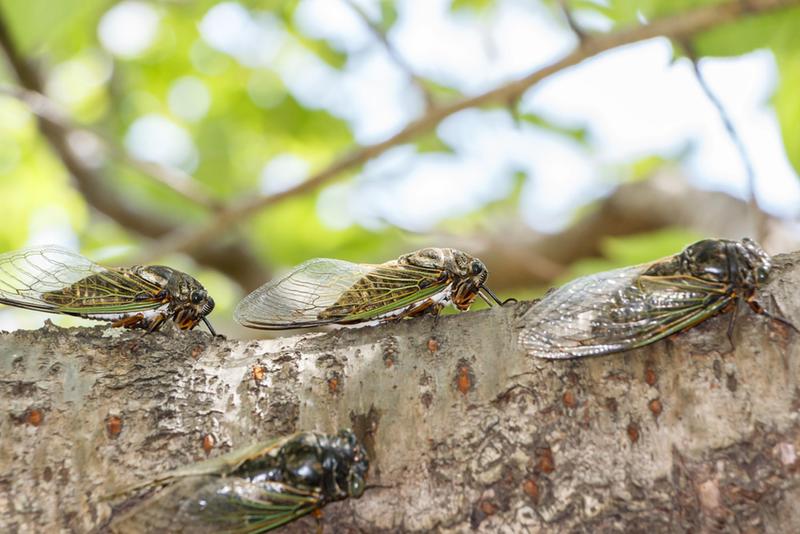
Cicadas +present a unique puzzle to scientists, who only get a chance to observe their habits every 17 years. To add to the mystery, sometimes cicadas emerge a few years early, puzzling scientists like University of Connecticut's Chris Simon, a biologist who noted: "We need to keep tracking them for 17 more years, and 17 years after that to get a clear picture."
Blood Falls
As if Antarctica wasn't foreboding enough already; you've endured a lengthy boat trip and/or a harrowing plane ride. You get there and you can't flush the toilet and definitely can't find a decent bagel. Then you look over and the glacier is bleeding. Don't fret, it's just iron oxide!
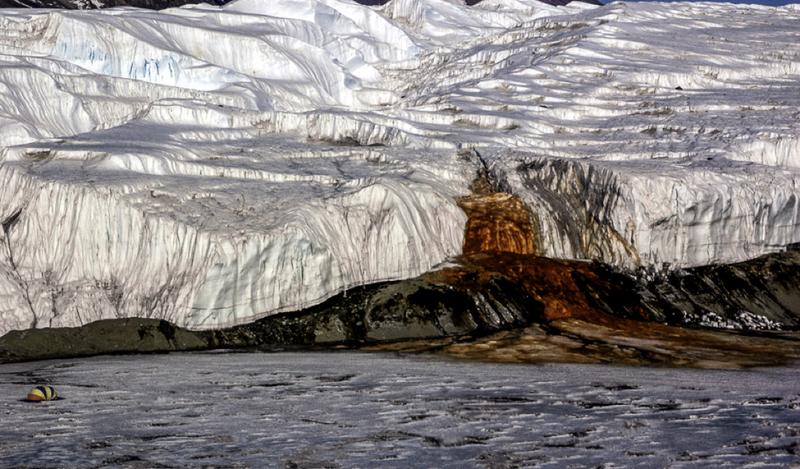
If you happen to be in the area, be sure to check out Taylor Glacier in East Antarctica. The Blood Falls are actually "a plume rising from an ancient hypersaline lake trapped beneath." To oversimplify, the glacier is just rusting.
Sailing Stones
If you're planning a trip to Death Valley, don't go in July. Located in California's Mojave Desert, it broke its own record in July 2018 for the hottest month ever recorded on Earth. But if you insist on subjecting yourself to such scorching desolation, swing by Racetrack Playa to see the mysterious sailing stones.
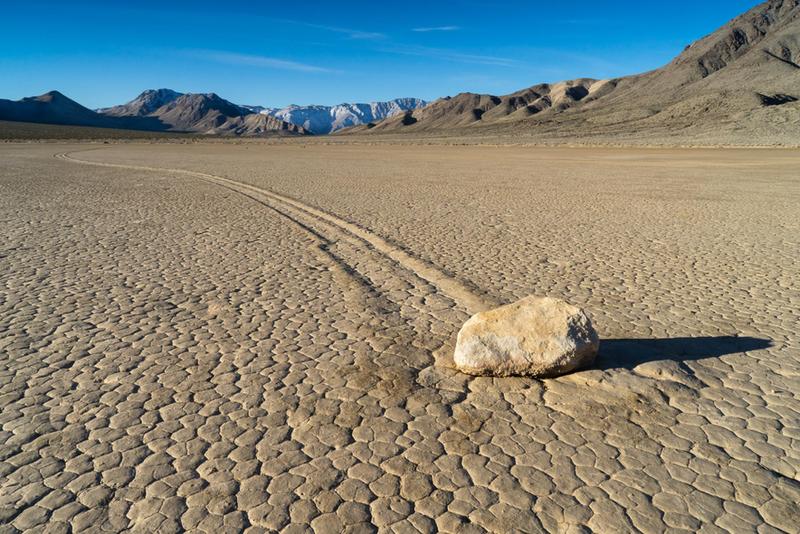
The National Park Service warns that you'll need a 4×4 vehicle with heavy-duty tires to avoid a flat on the "road," and there's no cell phone coverage, and you're more than three hours from the nearest relevant location. If you manage to get to the dry lakebed, you can puzzle over the rocks that seem to have skidded across the ground of their own volition.
According to a study by Scripps Institution of Oceanography, the playa can fill with a couple of inches of water that turns to "windowpane" ice on cold nights. It then partially melts and fractures during the day and gets pushed along by wind and that ice then pushes the rocks in the soft mud.
Pink Hypersaline Lakes
In the Great Rift Valley, Tanzania's Lake Natron are sometimes bright pink due to hypersalinity. Wouldn't it be fun to have a refreshing dip in that Bubble Yum water? No. It wouldn't. Because it can mummify you thanks to sodium carbonate deposits.
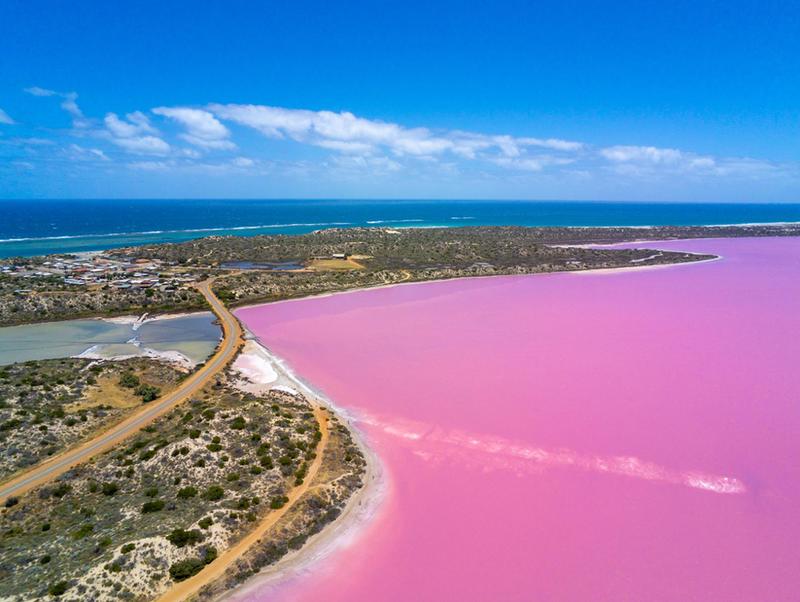
The combination of the high pH levels and sodium carbonate is disastrous for animals who venture into the lake. After the caustic alkaline water causes injury in the form of severe burns, the animals can be mummified by the high levels of sodium carbonate. Less toxic, pink lakes can also be found in Mexico and Australia.
Rainbow Eucalyptus
Though eucalyptus trees are typically found in the southern hemisphere, the rainbow eucalyptus is indigenous to the Philippines and other areas. It thrives in rainy tropical forests and grows up to 250 feet tall. They also have an aromatic oil that can be used as an insecticide.
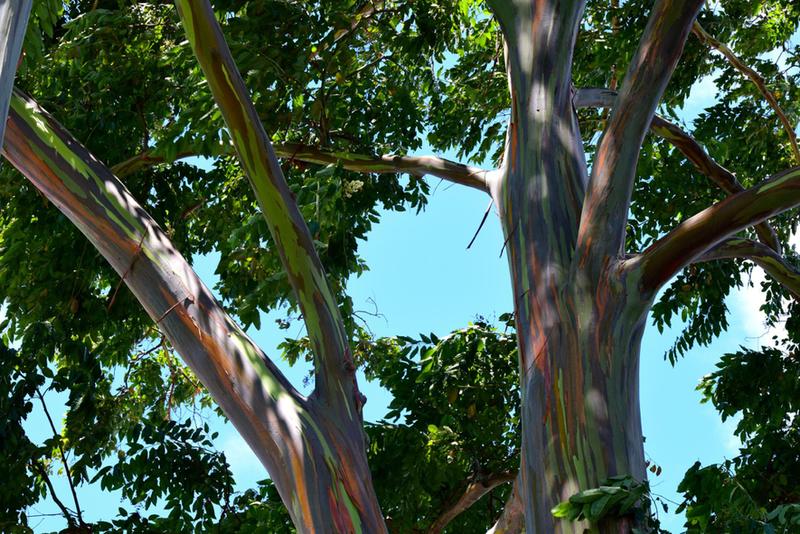
The visually stunning trees get their distinctive color from bark that is shed at different times. Smaller rainbow eucalyptus trees can grow in Hawaii and parts of California, Texas and Florida. So, perhaps consider one for your home garden if you're willing to invest the time and money in a statement piece of vibrant color.
Moonbow
Similar to their daytime equivalents, lunar rainbows are produced when light is reflected or refracted off water in the air. The difference is that the light source of a moonbow is the moon, while the sun provides light for a rainbow.
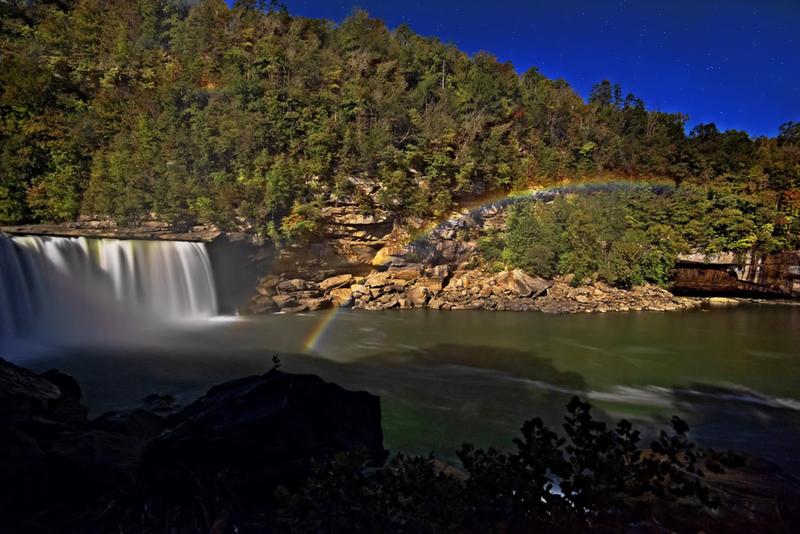
Though these are fainter than daytime rainbows, your best chance to catch a moonbow comes during a full moon observed near a waterfall, due to the increased light and water in the air. One of the most popular locations to observe a rare moonbow is near Victoria Falls between Zambia and Zimbabwe.
Pororoca
Tidal bores occur when a river empties into a larger body of water. The sudden deepening of the channel causes the tide to surge up against and over the river. This phenomenon can be observed around the world in places from China to Nova Scotia. But the king of tidal bores has long been in Brazil, where the Amazon River empties into the Atlantic Ocean, producing the world's longest wave – gnarly.
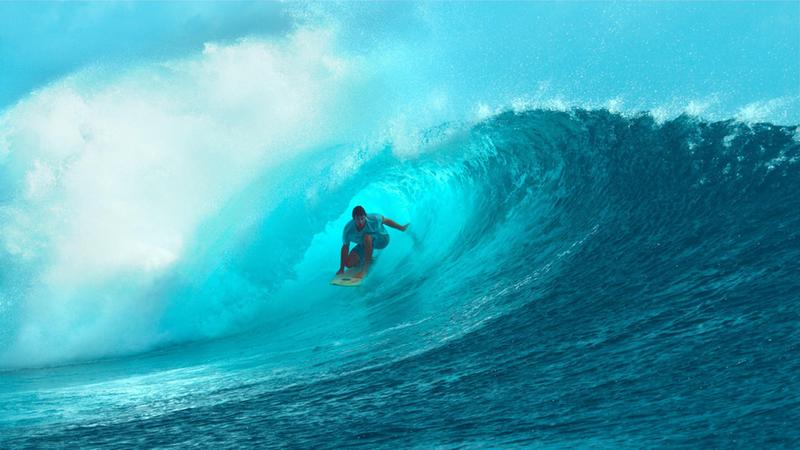
Measuring more than 10 feet high and capable of traveling hundreds of miles up the river, the pororoca is legendary among surfers, with the most skilled riders capable of surfing it for upward of an hour. Unfortunately, man-made factors such as agriculture and hydroelectric dams have recently blunted the mighty pororoca, rendering it unsurfable.
Frost Flowers
Though the first freeze of the fall season signals the coming of deep winter. It also brings a beautiful gift in the form of frost flowers. They're not actually flowers, so you can't purchase a bouquet of them for your significant other, but at least you can find them if you know where to look.
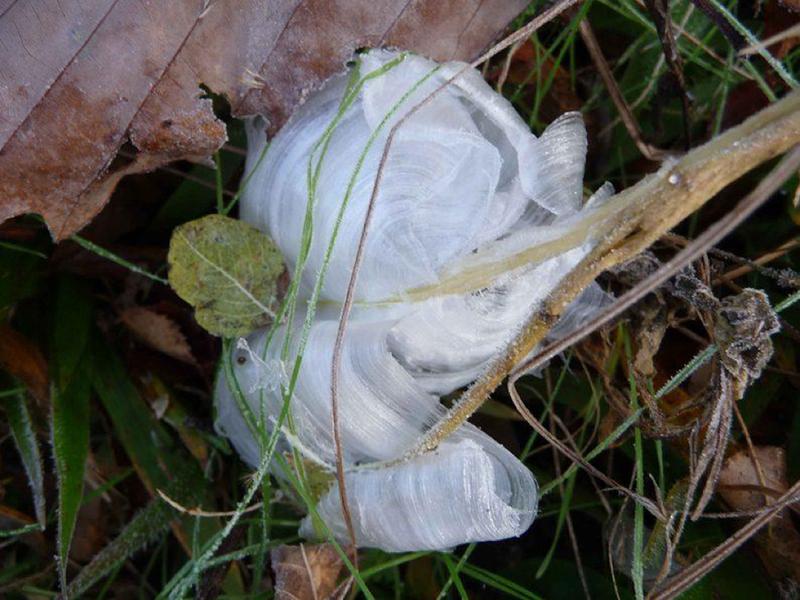
Early autumn freezes cause openings in plant stems and areas near the root system still receive sap while the ground is relatively warm. This sap freezes when it hits the air, allowing more sap to move up and freeze in turn, creating elaborate ribbons of frozen sap.
Snow Donuts
Similar to frost flowers, snow donuts form under exactly the right confluence of cold-weather conditions. Also known as snow rollers, this unusual phenomenon has been observed all over the U.S., from Idaho and Oregon to the New England States.
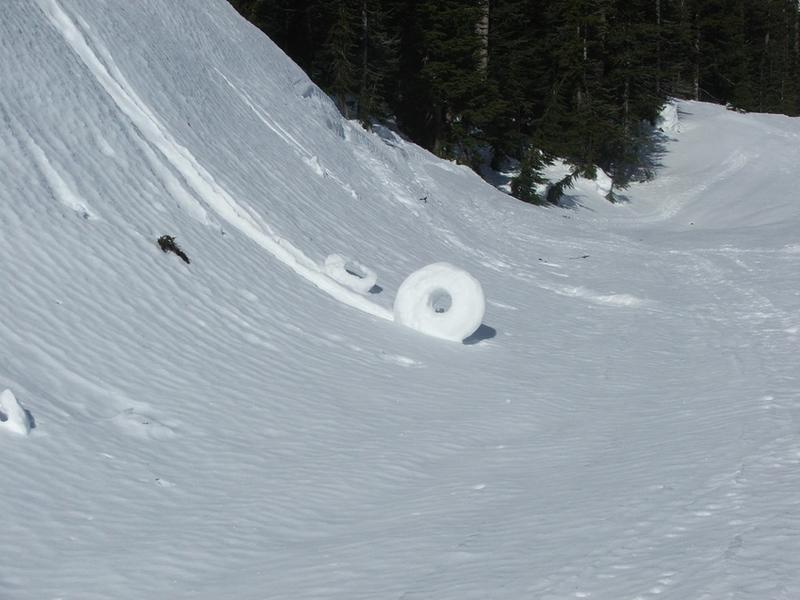
Formation of snow donuts requires that the snow be fresh and loose, with a layer of powder under the newest snow. This powder layer allows the snow pieces to break off and roll down the slope, gathering more snow as they roll. So, no, they're not actually donuts. Don't eat them.
Eternal Flame Falls
"Am I only dreaming, or is this burning an eternal flame?" Sang The Bangles in their song, Eternal Flame. Lucky visitors to Chestnut Ridge Park are not dreaming. The fire in the image, tucked underneath a waterfall is actually produced by a natural gas rupture in the Shale Creek Preserve. Hence, the waft of rotten eggs.
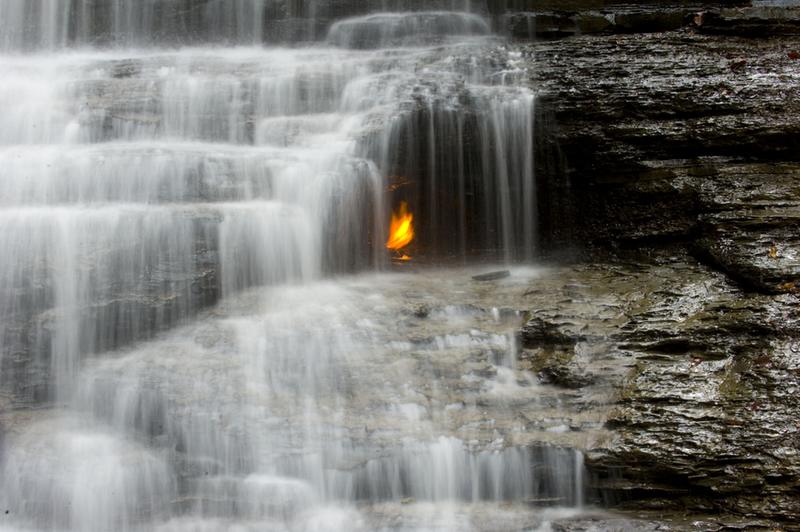
The hike to the waterfall can be somewhat tricky due to erosion and exposed roots. To get the full effect, you should ideally plan to visit when the falls are actually flowing — in early spring or following sustained periods of rain.
Underwater Crop Circles
Could these intricate crop circles in the sandy bottom of the ocean actually be evidence of ancient aliens living deep underwater far from the prying eyes of humans? No. These are, in fact, caused by male pufferfish as part of an incredible mating ritual. First observed by Japanese divers in 1995, it turned out to be an entirely new species of pufferfish.
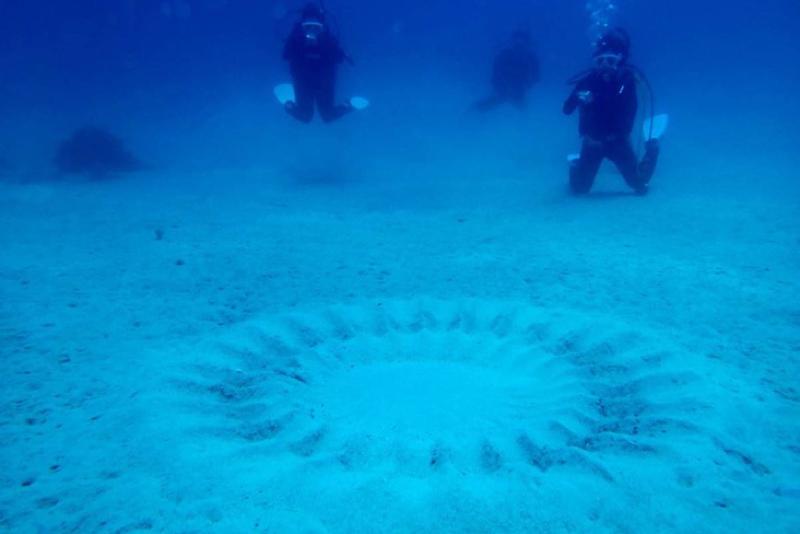
They measure just five inches long but can spend hundreds of hours creating mandala-like designs with a seven-foot diameter. Despite being "dull, almost to the point of invisibility," this laudable tactic helps hopeful pufferfish stand out to potential mates. It's considerably more romantic than proposing at a ballgame.
Spotted Lake
Known as Klikuk to First Nations peoples in Canada and considered sacred ground, the Spotted Lake sits north of Osoyoos in British Columbia's Okanagan Valley. It looks like a run-of-the-mill lake for most of the year. But during summer, the water evaporates to reveal an arresting visual of polka dots in various hues of blue, yellow and green.
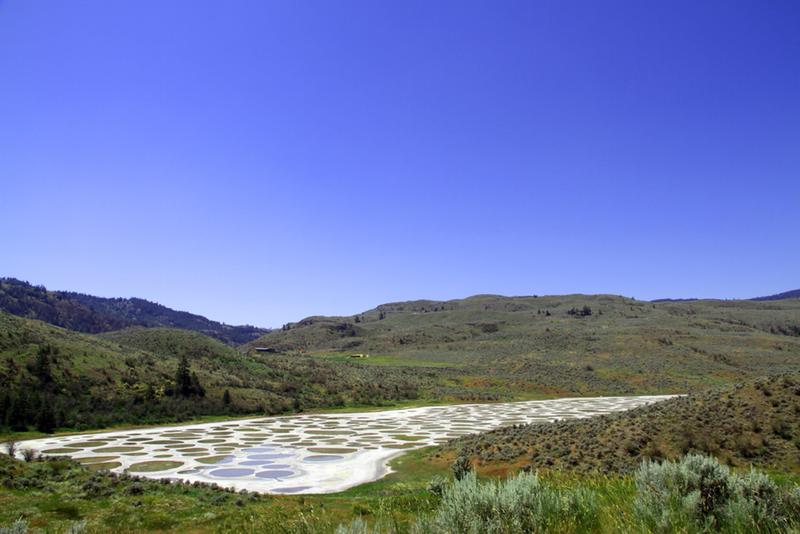
Called "the most magical place in Canada" by the CBC, the unique coloration is caused by high mineral content with calcium, sodium sulphates and magnesium sulphate. Interesting fact: minerals from the lake were harvested to make ammunition during World War I. To help preserve the area's cultural and environmental significance, visitors are not allowed to walk among the stunning spots.
Fire Whirls
Also known as a fire devil, and caused by a process similar to the one that creates dust devils, these unusual formations resemble a small tornado of flames. Often caused by brush fires, they require a unique combination of extreme heat and winds that whip up ash and flames into a frightening tangle.
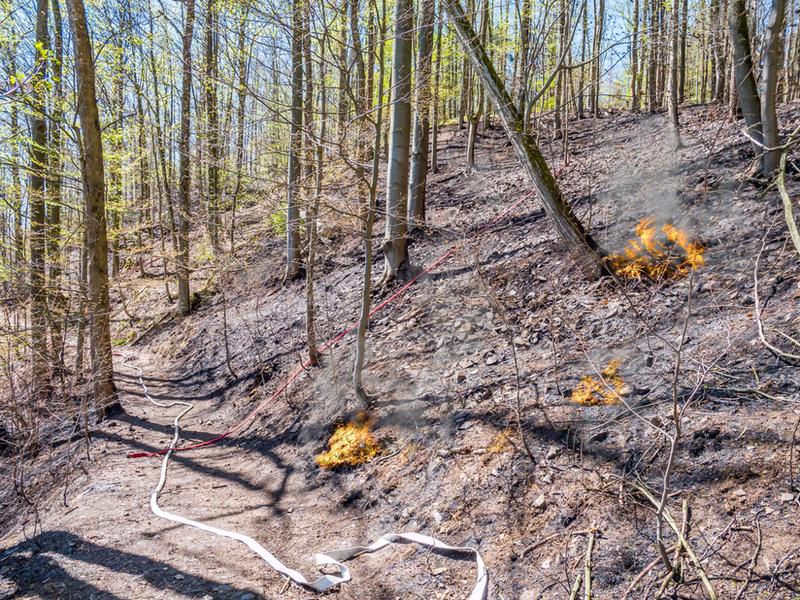
Fire whirls are typically fairly small and distinct from a so-called "firenado," which can be substantially larger in size (i.e., several football fields wide) and require intense heat beneath an ice-topped cloud that can cause deadly results, such as the one produced by the Carr Fire in California in 2018 that claimed the life of a firefighter.
Pele's Hair
Named after the Hawaiian volcano goddess, (not the Brazilian soccer legend) Pele's hair is a very thin form of basaltic lava. It's essentially natural fiberglass, so don't roll around in it, as it can cause respiratory distress and severe eye injury.
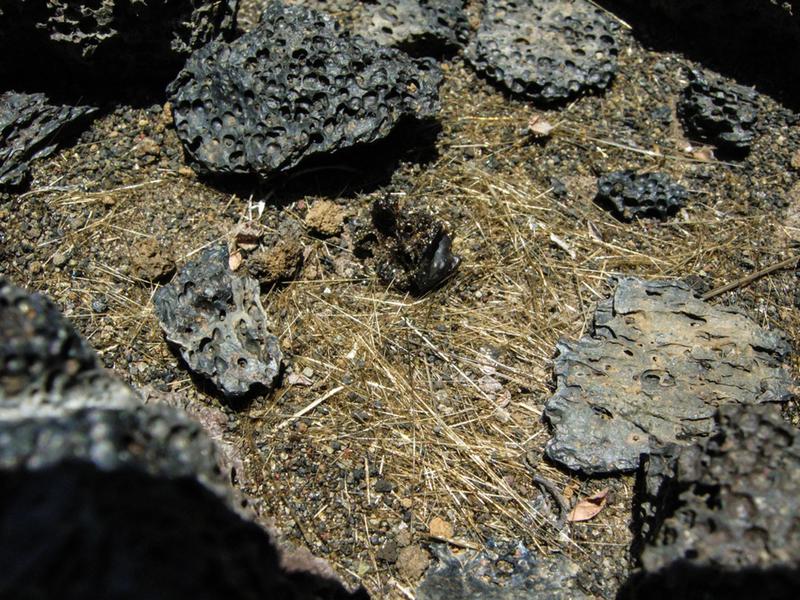
Pele's hair is formed when airborne molten lava separates while in the air, causing thin strands to stretch out between the larger pieces as they move apart. The hair-like strands solidify into what appears to be glass, and collect on the ground surrounding the volcano.
These strands can be carried by wind more than a mile from the lava source, and were a common sight following the 2018 Kilauea eruption in Hawaii.
Salar de Uyuni
Eat your heart out, Bonneville Salt Flats. While you've been busy letting racers attempt to break the land speed record, the Salar de Uyuni in Bolivia is 100 times larger and the ultimate lure for salty Instagrammers. Measuring more than 4,050 square miles, the vista consists of several prehistoric lakes and features countless pentagons of salt peeking up through the earth.
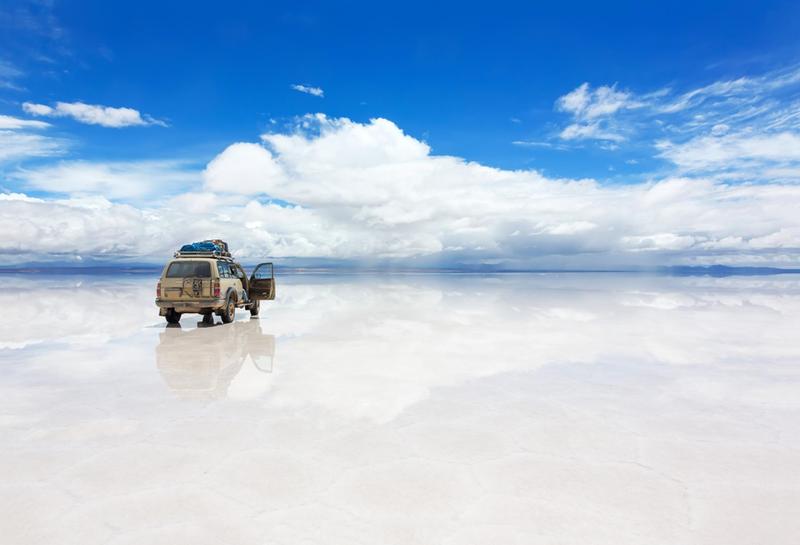
Salar de Uyuni also creates a haven for optical-illusion photos and forced-perspective photography, as well as amazing reflection pools when water collects across the landscape. The location was even used to film a battle scene in Star Wars: The Last Jedi. Unfortunately, while locals have mined salt here for generations, the Bolivian government is exploring plans to ramp up mineral harvesting due to the area's significant lithium reserves.
Catatumbo Lightning
Humans are typically advised to avoid lightning, but if you want to buck that trend, look no further than the Catatumbo River in Venezuela where it empties into Lake Maracaibo. This location witnesses more lightning strikes than any other place on Earth. It sees a stunning 1.2 million lightning strikes per year.
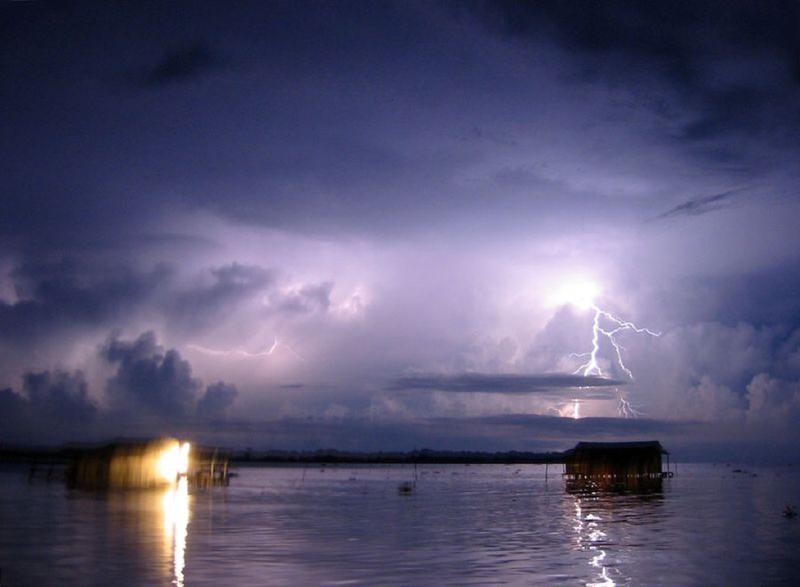
These lightning storms can last for 10 hours at a time and are visible 260 nights per year on average, peaking in October during the rainy season. Scientific theories about the cause of the lightning concentration have ranged from the area's uranium deposits to methane seepage, but it could also be related to the unique topography of the river mouth.
Darvaza Gas Crater
If for some reason you want to visit a place dubbed the "Door to Hell," and you also want to visit Turkmenistan, then you can stop by the imposing 230-foot-wide Darvaza gas crater. Billy Joel famously crooned that We Didn't Start the Fire, but in this case, we know who did start the fire.
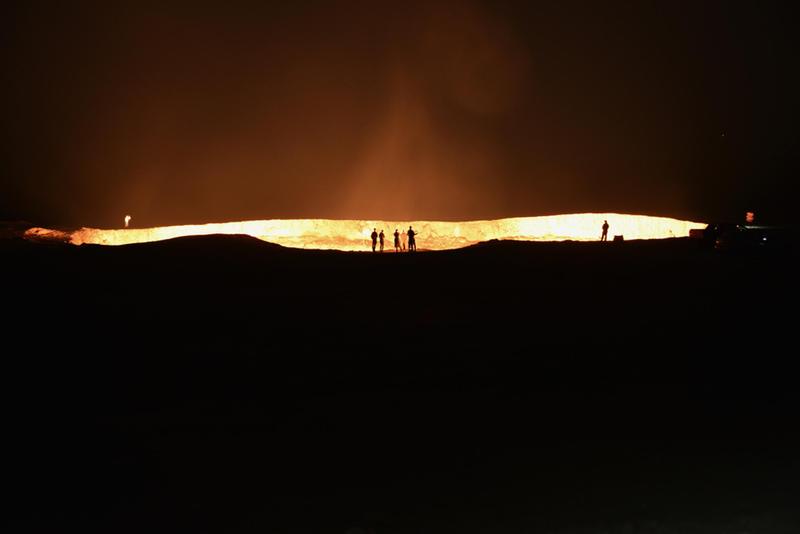
In 1971, Soviet geologists searched the Karakum Desert for oil fields and deemed this area a promising prospect. They began drilling but the large natural gas pocket collapsed in numerous areas. So, in the interest of safety, they intentionally set it on fire. It's been burning for a half-century. In 2010, president Gurbanguly Berdimuhamedow ordered that the hole should be filled, but no action has been taken yet.
Christmas Island Crab Swarms
No, Christmas Island is not where Santa Claus spends 11 months of the year. Christmas Island is an external territory of Australia located in the Indian Ocean. Once a valuable source of delicious phosphate. It's also got crabs – lots of them, about 50 million or so.
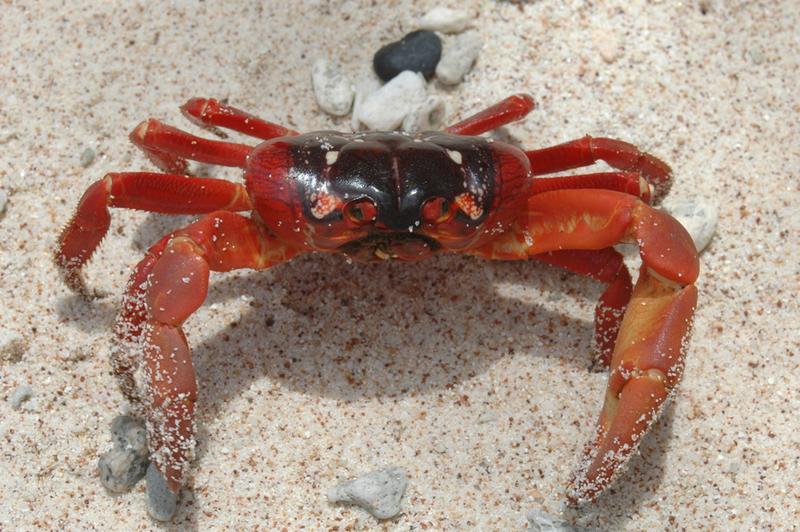
In fact, the island had to install road infrastructure, including more than 10 miles of plastic barriers, an overpass, and dozens of underpasses just so these busy little crabs can scuttle across on their annual migration to breed. Conveniently, they have a cheerful red coloration, so Merry Christmas to all.
Spider Rain
Rain can be an inconvenience if you fail to check the weather forecast and get caught in a downpour without an umbrella. But sometimes it rains spiders. Live Science consulted retired UC-Riverside arachnologist Rick Vetter, who relayed some downright terrifying information about the phenomenon of "ballooning", saying: "Ballooning is a not-uncommon behavior of many spiders. They climb some high area and stick their butts up in the air and release silk."
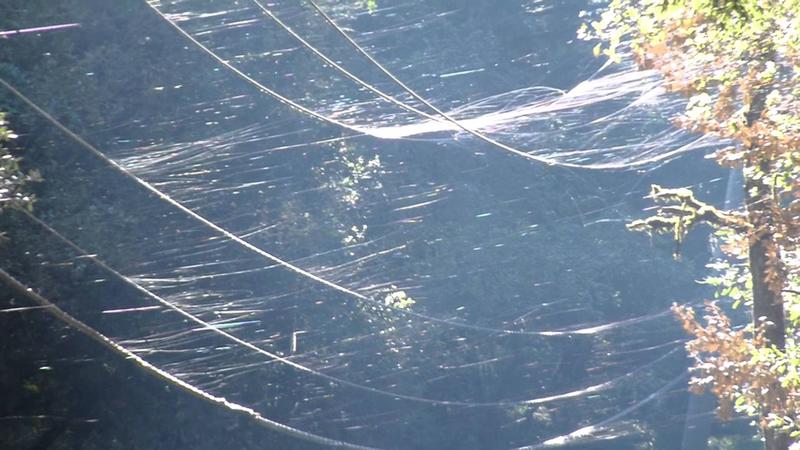
Even Charles Darwin experienced this bizarre spider ballooning, calling it "quite unaccountable" and "inexplicable," as noted by The Atlantic. This ballooning can be particularly extreme in Australia (because of course it is), and spiders fleeing flood waters en masse have produced thick blankets of silky webs across parts of Tasmania and New South Wales. These fine webs are also known as "angel hair," so spiders have ruined pasta as well.
Fairy Circles
Known to some as the "footprints of the gods," so-called "fairy circles" are bald spots in vegetation across some areas of Namibia and South Africa. These marks have baffled locals and scientists for generations. As Atlas Obscura describes it, "Rings are forming in the ground. Perfectly round, almost too-good-to-be-true rings, in fact."
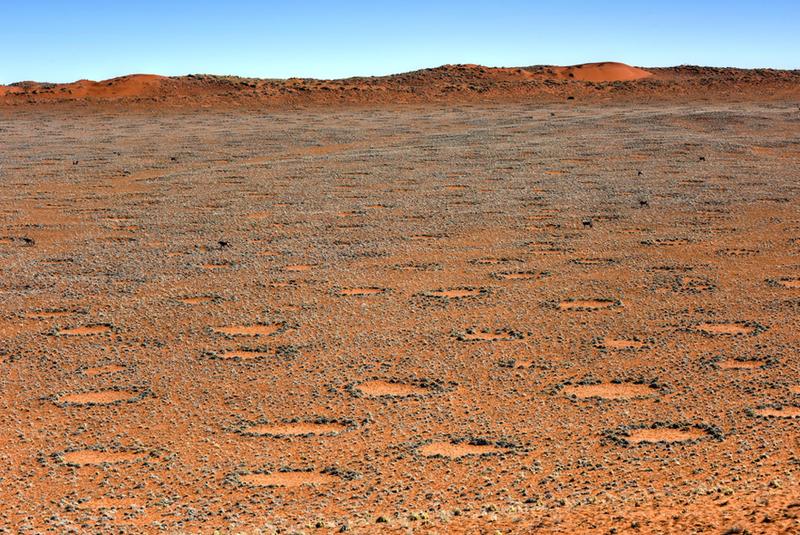
As it turns out, the two competing theories about their origin may both be correct. One claim holds that termites are responsible for fairy circles, while other researchers believe that the circles are caused by the water usage of the surrounding plants. This phenomenon has also been observed in parts of the Australian desert.
Starling Murmurations
Starlings are a type of bird that weigh about the same as a Quarter Pounder. They are also known to put on a spectacular show of synchronized flight. They can also (sort of) block out the sun. A fairly common sight at certain times of the year in parts of Denmark and the United Kingdom, starling swarms are known as murmurations.
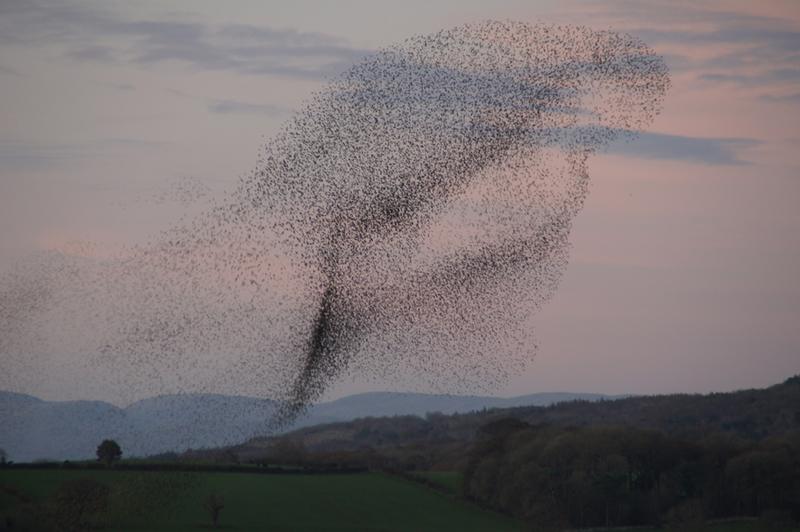
These are dubbed "sort sol," Danish for "black sun," and consist of hundreds or even thousands of starlings swooping and diving around sunset. Scientists have studied the phenomenon and found that striking patterns appear in the murmurations, with birds creating alternating pockets of low and high density.
Giant's Causeway
These might look like giant rolls of pennies clumped together, but they're actually formed by 40,000 interlocking hexagonal basalt columns in Northern Ireland. They were produced 60 million years ago by cooling lava. Before Game of Thrones dominated Northern Irish tourism promotions, the Giant's Causeway stood as the main attraction for most visitors.
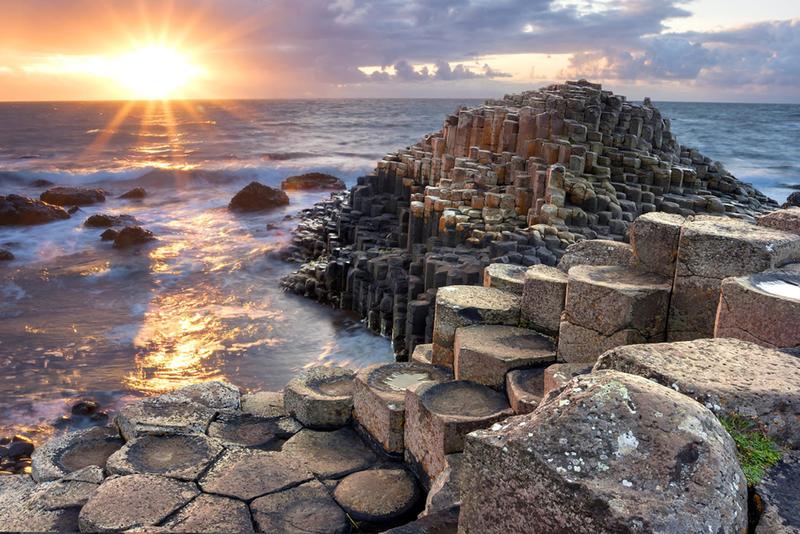
As legend has it, Irish giant Finn McCool attempted to protect the island from the threatening Scottish giant Benandonner. He picked up pieces of the Antrim coast and threw them into the sea. But these chunks formed a path that Benandonner used to pursue Finn back to Ireland.
Flowering Desert
The Atacama Desert in Chile is the driest place on Earth. How dry is it, you ask? Well, it's so dry that it gets less than one millimeter of rainfall each year. Research shows that some of the Atacama's riverbeds have been dry for 120,000 years, and researchers speculate that some pockets of the South American desert have never seen water at all.
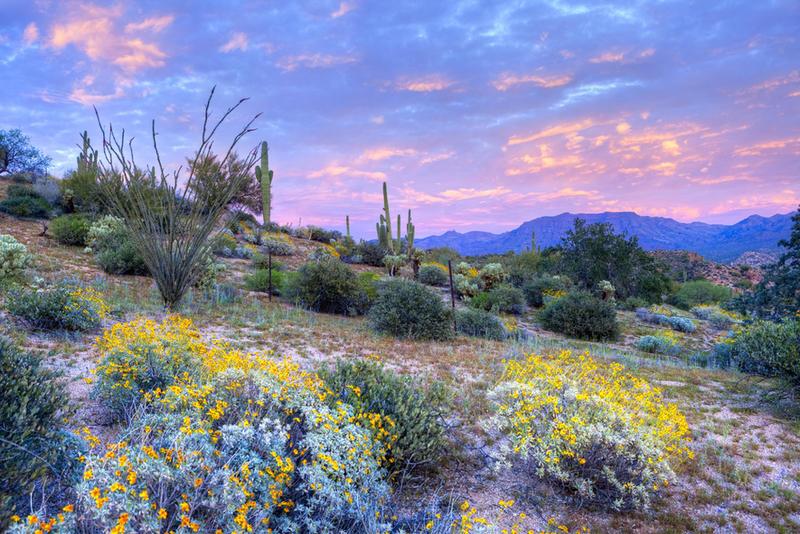
However, when it does rain, the landscape blooms to life with a stunning array of flowers. Called the "desierto florido" (flowering desert), this phenomenon "usually occurs every five to seven years when rains cause buried seeds to germinate and flower," according to the BBC.
Exploding Methane Craters
When you think of Siberia, you probably imagine a desolate landscape devoid of amazing natural phenomena. However, if you want to investigate melting permafrost and mysterious craters likely caused by exploding methane, then Siberia is the place to be!
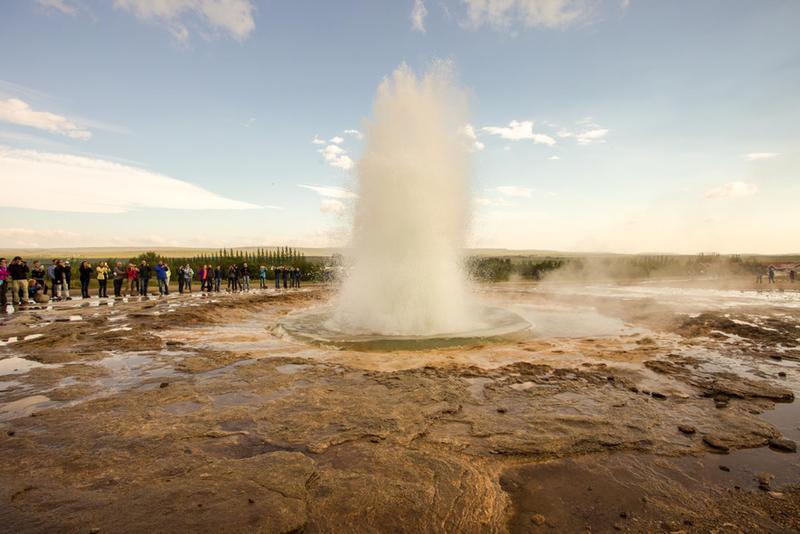
Permafrost is soil that remains frozen for at least two consecutive years. It typically contains dead plants and animals that decompose as the soil defrosts, a process sped along by climate change. Permafrost also causes pingoes, which are large groundswells up to 300-feet high created by freezing groundwater pushing up frozen ground. If the gases explode, it can cause a large crater.
Crystal Desert Rose
Although rock legend Sting might "dream of gardens in the desert sand," this is not what he meant. Crystal "roses" are made from gypsum or barite. According to Geology In, they "crystalize in a unique rosette growth pattern… The 'petals' are crystals flattened on the c crystallographic axis, fanning open in radiating flattened crystal clusters."
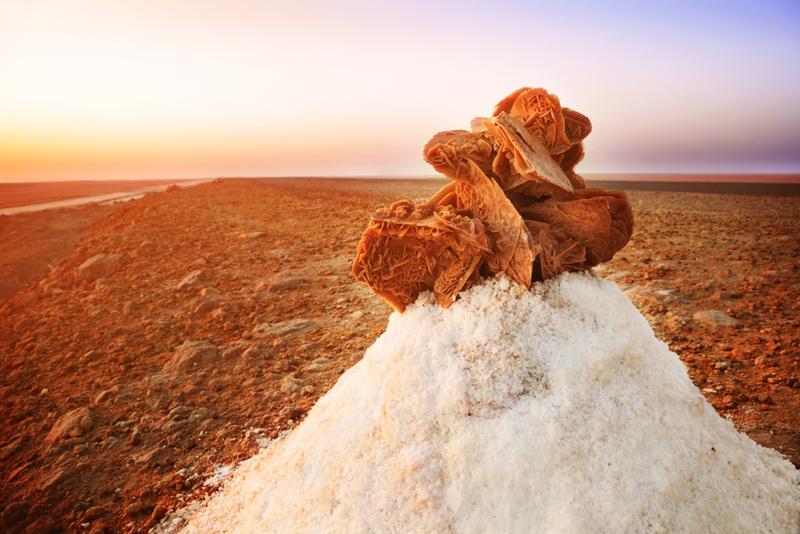
These gorgeous crystals appear all over the world, but are particularly common in one U.S. state. "Rose rocks – the reddish-brown sandy crystals of barite that resemble a rose in full bloom – are more abundant in Oklahoma than anywhere else in the world," per the Oklahoma Geological Survey.
Fair-Weather Waterspouts
Waterspouts are very similar to tornadoes over water. There are two types: those caused by severe storms over water, similar to land-based tornadoes, and the much scarier and harder-to-predict fair-weather waterspouts, which are not caused by a supercell system and form on calm ocean with relatively calm winds.
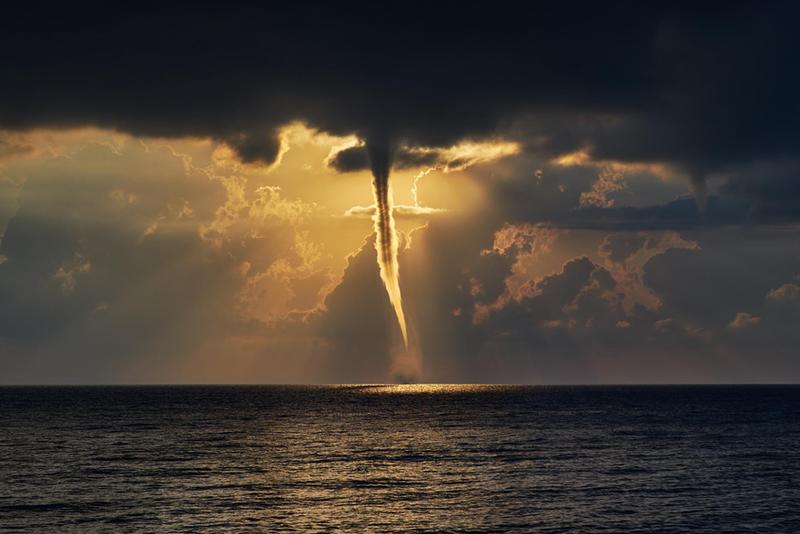
Understandably, mariners have maintained a healthy fear of fair-weather waterspouts for millennia. These are especially common in Florida Keys, developing on the surface of the water and stretching skyward. These come from warm, humid air near the water surface producing rising currents, and winds then cause updrafts of spinning air, capable of reaching speeds of up to 190 miles per hour.
Frozen Methane Bubbles
You might not expect it, but a farting lake in Alberta, Canada, delivers one of the more spectacular sights in nature. At the right time of year, organic matter, such as dead plants, sink to the bottom of Abraham Lake and decompose, producing methane bubbles that rise and freeze near the surface for a stunning visual effect.
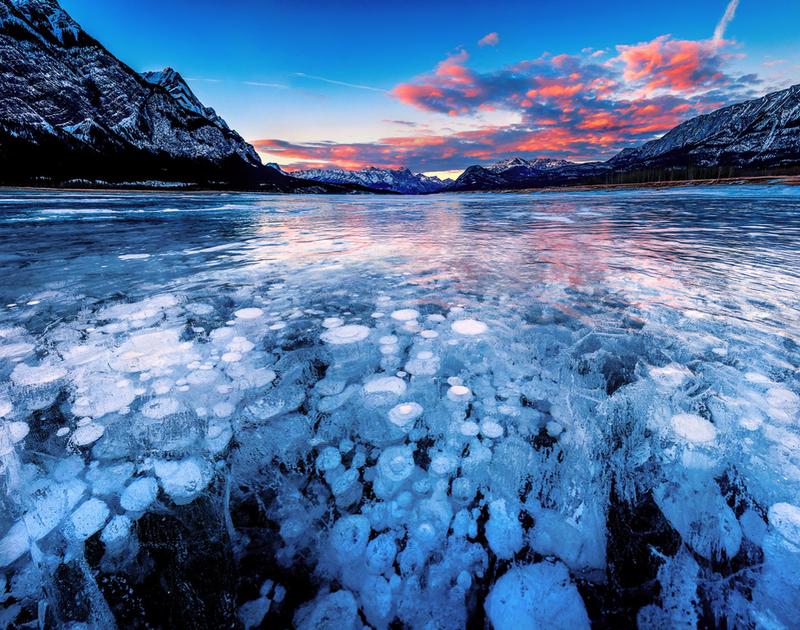
Unfortunately, this occurrence on the man-made lake could pose an existential threat to humanity. As the frozen bubbles thaw, methane enters the atmosphere, heating up the surrounding air 86 times faster than carbon dioxide, further exacerbating global warming.
Eyeless Shrimp on Hydrothermal Vents
"Life uh, finds a way." So goes the credo of Jeff Goldblum's Dr. Ian Malcolm in Jurassic Park. And he's got a point. In 2012, scientists announced findings from a voyage to the Mid-Cayman Rise three miles under the surface of the Caribbean Sea.
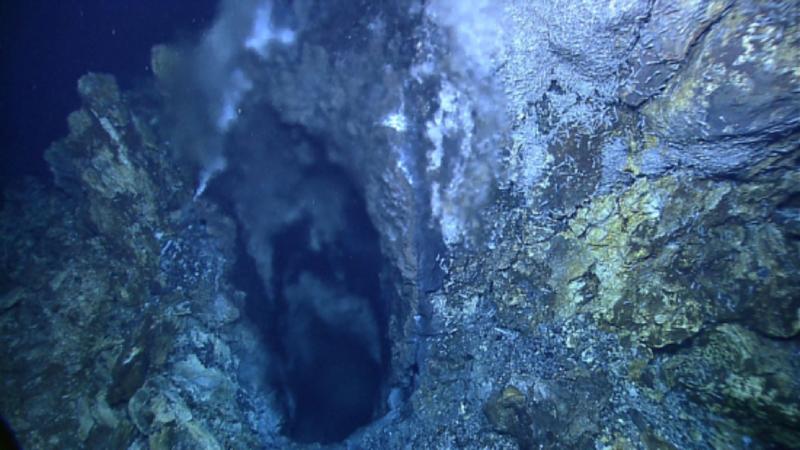
The researchers were surprised to find "slender, rocky spires towering 20 feet above the seafloor, spewing forth a sooty jet of metal-rich fluid some 3,600 feet high." That sounds highly toxic and not hospitable for any living creative. And yet, they found these vents to be teeming with a species of mostly eyeless shrimp, Rimicaris hybisae.
Source: https://www.reference.com/science/amazing-natural-phenomena-that-have-to-be-seen?utm_content=params%3Ao%3D740005%26ad%3DdirN%26qo%3DserpIndex&ueid=54fe6cbc-15b6-40e6-ba76-89944aaf8e50
0 Response to "Which of These Should Be Easy to Believe"
Post a Comment